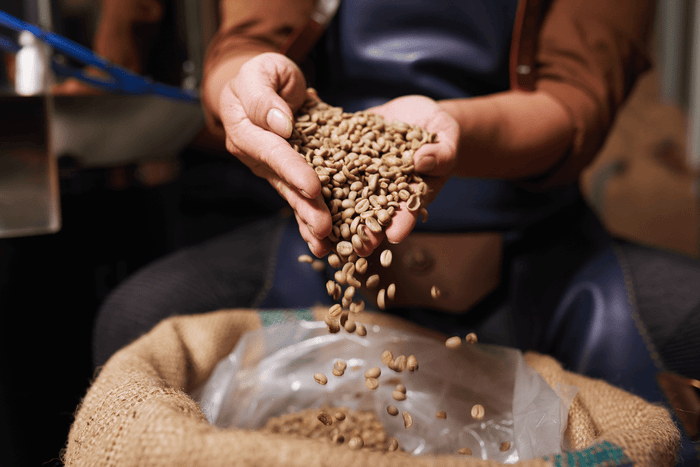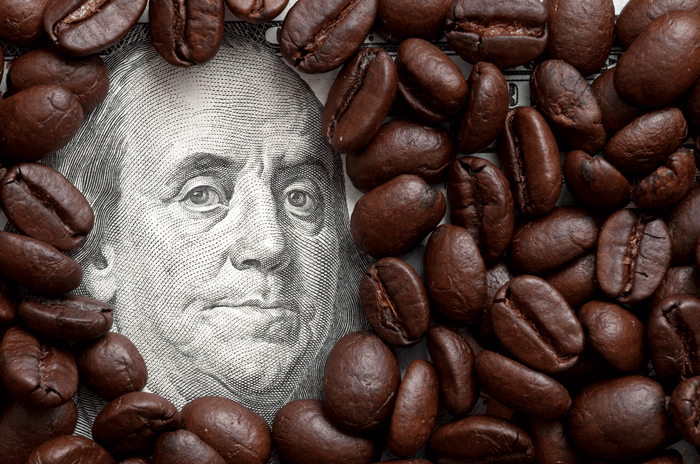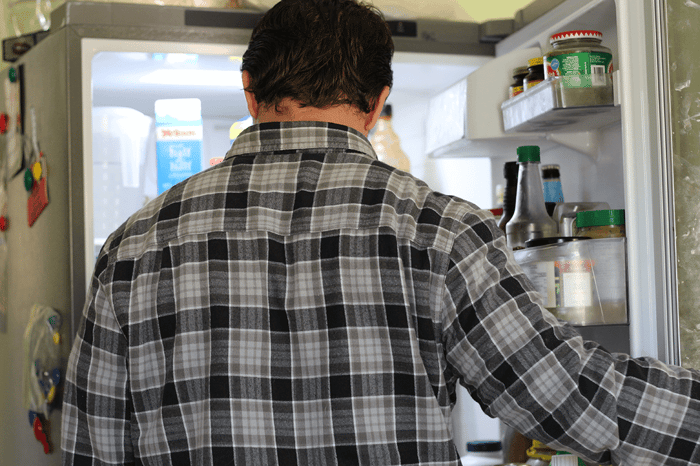As any coffee aficionado knows, not all beans are created equal. Arabica beans are known for their delicate flavor and aroma, while Robusta beans are known for their strong, bold taste.
Robusta beans have traditionally been the coffee bean of the masses—a bean of the blue-collar working class, really.
Why? Well, historically, Robusta beans have been less pricey than Arabica beans.
But does having a generally lower price mean that Robusta beans are “inferior” to Arabica beans?
Not so fast.
Why are Robusta Beans Less Expensive?
First found in the Western sub-Saharan African region, Robusta beans grow in lower altitudes that see more rain. Arabica on the other hand grows in high altitudes in dryer climates.
Since there is more area available to farm at lower altitudes than higher altitudes, Robusta can be grown in a wider variety of locations—thus making the cost to produce Robusta beans less.
That's the reason you'll often find Robusta beans in instant coffees and discount coffee brands, and why they have an undeserved reputation of being “lower quality than Arabica.”
Arabica vs. Robusta: Flavor
Arabica coffee is widely believed (well, widely marketed anyway) as being inherently better tasting than Robusta coffee. However, many real coffee aficionados—not coffee snobs—believe the difference in taste is overstated.
In reality, both types of coffee beans have their own unique flavor profiles that can appeal to different taste buds—and many people find both types appealing.
While Arabica beans may tend to develop more nuanced and delicate notes, Robusta beans can have their own flavor notes as well. And they tend to pack a bolder, more powerful coffee flavor—with a higher caffeine content to boot.
But hey, who wants to drink a strong cup of coffee that tastes like a strong cup of coffee, and has lots of caffeine?
Arabica vs. Robusta: Caffeine Content
Robusta beans are typically more "earthy" in flavor, with notes of hazelnut, macadamia, and chocolate. They also have a higher caffeine content, which can make them quite bitter—when poorly roasted. Honestly? If you like coffee as a beverage, but don’t want the caffeine for some reason, Robusta blends aren’t for you.
Arabica coffee beans have a higher sugar content and less caffeine, so their flavors tend to be described as more "bright" and "floral."
However, both Arabica and Robusta beans can be delicious when roasted properly.
So if your tastes lean toward nuts and chocolate, you definitely shouldn't be against having Robusta in your cup.
Arabica vs. Robusta: Acidity
As anyone who has ever tried to drink 100% Arabica coffee on an empty stomach knows, coffee can be a highly acidic beverage. This is due to the fact that coffee beans are naturally quite acidic.
Many people, even coffee lovers, incorrectly associate a bolder, stronger coffee flavor with higher acid content. In reality, stronger Robusta coffee beans have a lower acid content than Arabica beans.
This makes Robusta a great choice for those with acid reflux or sensitive stomachs. When blended with Arabica beans, Robusta beans can help lower the coffee's overall acidity. So if you're looking for a cup of coffee that's easier on your stomach, make sure to look for a blend that features Robusta beans.
Now, if you're more the sort of person who enjoys drinking coffee that feels like battery acid in your stomach, some under-extracted, light roast 100% Arabica is definitely the way to go.
But for a more palatable brew with a lower acid content, a blend of Arabica and Robusta makes sense. When blended together, these two types of beans can produce a cup of coffee that is both flavorful and easier on the stomach.
Why Does Robusta Get a Bad Rap?
For years, Robusta beans have been unjustly vilified by some of the biggest snobs in the coffee industry. But why is this?
It's simple: Since they've historically been less expensive and more plentiful than their Arabica cousins, they've been long used as fillers in discount coffee brands and (*shudder*) instant coffees.
And what kind of things come to mind when we think of the flavor profiles (if you can call them that) of discount coffees and instant coffees?
Notes of "Burnt rubber?" The aroma of "All-Season Tire?" Delicate hints of "Bowling alley ashtray?" Yeah, those can be pretty accurate descriptors. Cheap instant coffee—Best served with a side of roadkill.
But do those coffees taste bad because they include Robusta beans? No—it's because they're not roasted well. They're made for people who don't care how their coffee tastes.
The Future of Robusta Beans in the Coffee Industry
Thankfully, in recent years, some specialty coffee roasters have started to see the potential of fine, high-quality Robusta beans.
When roasted correctly, Robusta beans can not only produce coffee with a higher caffeine content but coffee with a deeper, more complex flavor profile than you might expect. (Especially compared to what that one guy who works at your nearest Apple Store, and has a lot of opinions about your coffee, has to say about the matter.)
As the coffee industry continues to evolve, it's likely that we'll see more master coffee roasters experiment with this unfairly-maligned bean.
At Black Insomnia, we take coffee seriously. We're known as the strongest coffee in the world—and that's no accident. We use a top-secret blend of top-quality beans, to create the perfect blend of rich flavor—balanced with a strong caffeine kick.
Our coffee is the best because we put so much time and effort into perfecting it over the years. You simply won't find a more energizing cup of coffee anywhere else.
If you're looking for a great-tasting, bold, strong cup of coffee, try us. We'll hook you up with the strongest cup of coffee you've ever had.
This ain't no ordinary coffee. This is Black Insomnia.






